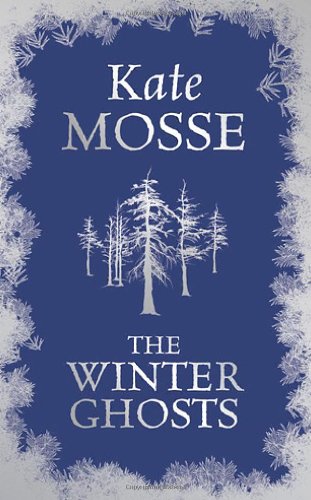So here are the results for the 2010 “6000 Pages” project. I’m referring to it that way because I intend to do it again in 2011 with pretty much the same rules. First a couple of things I need to clarify before I can get on to the fun part – the numbers.
High Fidelity was the last book I completed in 2010 but the rules allowed me to count one book that I was part way through. In fact I was part way through 8 books so I really need to pick one as the one that “counts”. I had not expected for this to be the case but I guess the freedom of starting a new book instead of struggling on with something I wasn’t getting into was too much. However as I re-read the rules from the beginning of the year I see
Only one unfinished book counts. I expect this to be the last one. It means I don’t have to race to finish whatever I happen to be in the middle of on 31-dec (unless I want to)
So the intent was not simply to count an unfinished book to gain extra points, but to count a book I was going to finish anyway. This being the case I’m going to pick not the unfinished book with the highest page count (The Illearth War) but one I intend to finish in 2011 (Solar).
| “Some Numbers” |
|
|
|
|
|
|
2009 |
2010 |
| Total reading time |
98:23:00 |
107:38:00 |
| Mins per/day |
16 |
17 |
| Pages/hour |
50 |
51 |
| Pages read |
4924 |
5357 |
| Pages read that count |
4924 |
5050 |
| Pages/day |
13 |
15 |
| Books completed |
18 |
14 |
| Average book length |
274 |
352 |
| One book every … days |
20.25 |
26 |
| Reading days |
71 |
85 |
| Time/reading day |
01:23:00 |
01:15:00 |
| Pages/reading day |
69 |
64.9 |
| Longest gap |
54 |
45 |
|
|
|
| Average rating for book |
7 |
7.6 |
So you can see that by most measures I did better this year than last – I read more often, read more pages (if not more books), the gaps between reading days were short and spent more time reading. I enjoyed it more too – which is true both from my overall impressions and from the fact that my average rating has gone up. So I must have scored more points right?
Er not quite.
The scoring rules are quite simple. First we take my “pages that count” score and each 100 pages above/below scores/deducts a point. Well I read 5050 pages so rounding up I can give myself 1 point.
Second take the number of reading days and compare to 85. In fact I read on 85 days so 0 points either added or deducted.
Then I get points for average book length. 352 is in the range 326-375 so I score 2 points.
Giving me an overall score of 3. Which doesn’t compare too well with last year’s 17 for “25 books”.
But hang on I said
the new scoring rules […] are designed to give me a stretch, to hopefully allow a similar score to last year for a similar amount of effort (so I can aim to ‘beat’ my score, even if the basis is entirely different)
and yet my “similar” but slightly better efforts (as shown in the table) give me significantly less. I can only conclude that despite my stated intent I miscalculated. I am therefore retroactively changing the rules so that I start with a “base” of 15 points. That seems reasonable given that I can potentially lose points for all three of the main criteria. And 15 seems fair because it gives me an overall score of 18points – which means I “beat” last year’s score but only by 1 point, which seems to reflect what’s shown by the more detailed figures.
Slightly Revised Rules
So, mainly for clarity, here are the rules for 2011.
1. Start with 15 points
2. For every 100 pages above/below 5000 add/deduct a point. Round up if 50 or above and down if below.
3. For every “reading day” above or below 85 add or deduct 1 point – upto a maximum of +15 or minimum of -10.
4. Round up the average page count to the nearest 5 and:
- 0-250pages – -1 point
- 251-300pages – 0 points
- 301-325pages – 1 point
- 326-375pages – 2points
- 375-500pages – 5points
- 500+pages – 10points
5. Only one unfinished book counts. This book must be finished the following year. Deduct 1 point if the previous year’s unfinished book is not complete.


 Okaaay…. this could be long, and like my review of
Okaaay…. this could be long, and like my review of 





